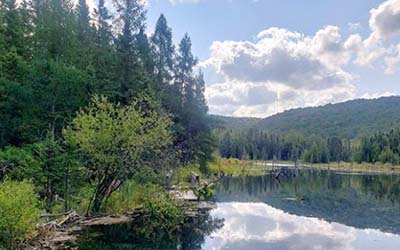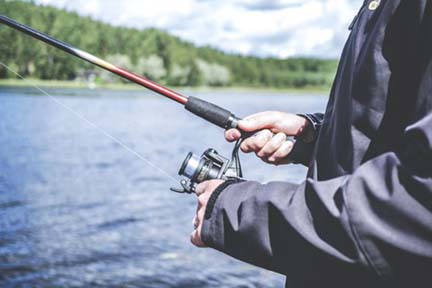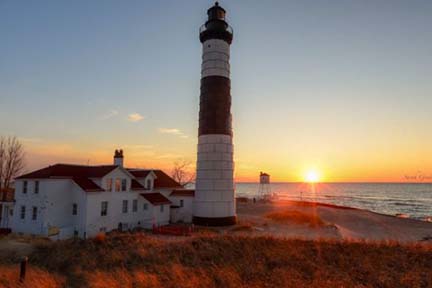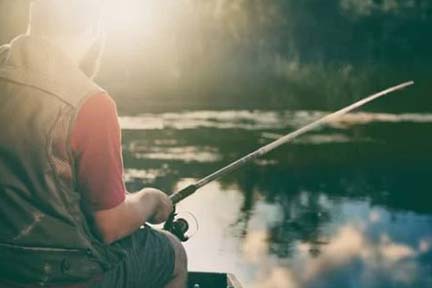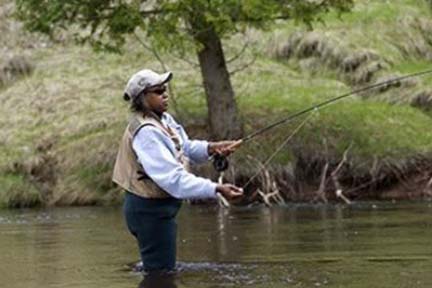| Here are just a few of this week’s stories from the Michigan Department of Natural Resources:
See other news releases, Showcasing the DNR stories, photos and other resources at Michigan.gov/DNRPressRoom.
PHOTO FOLDER: Larger, higher-res versions of some of the images used in this email are available in this folder.
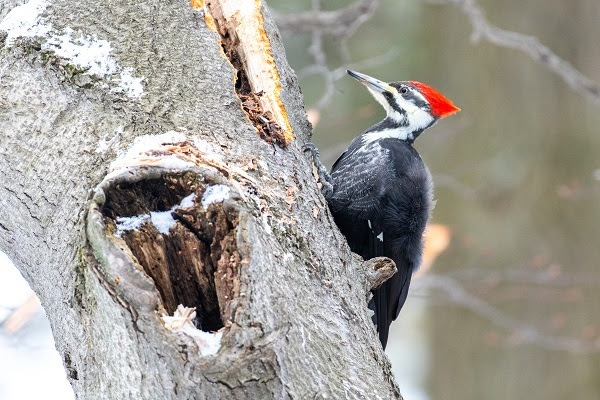 Want to see more pictures like this, taken by Michigan state parks photo ambassador Blair Celano at Ludington State Park in Mason County? Visit Instagram.com/MiStateParks to explore photos and learn more about the photo ambassadors! For more on the photo ambassador program, call Stephanie Yancer at 989-274-6182. Want to see more pictures like this, taken by Michigan state parks photo ambassador Blair Celano at Ludington State Park in Mason County? Visit Instagram.com/MiStateParks to explore photos and learn more about the photo ambassadors! For more on the photo ambassador program, call Stephanie Yancer at 989-274-6182.
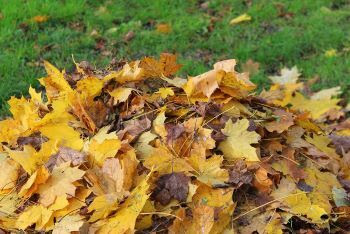 Yard looking a little disheveled with sticks, fallen leaves and dead plants hanging around? Don’t worry too much; nature likes it a bit on the wild side. When it comes to annual fall cleanup, follow these tips to help wildlife and prevent wildfire. Yard looking a little disheveled with sticks, fallen leaves and dead plants hanging around? Don’t worry too much; nature likes it a bit on the wild side. When it comes to annual fall cleanup, follow these tips to help wildlife and prevent wildfire.
First, the easy part: Move a fall task to your spring to-do list. Hold off on clipping dead plant stems until 50-degree days return. If left over winter, they’ll provide protection for perennial plants. The hollow spaces in stems will give small critters and pollinators places to hibernate. Learn about the benefits of “leaving the leaves.”
Although some local ordinances allow fallen leaves to be burned or removed curbside, why not use dead leaves as free mulch? They will insulate plants and slow erosion, keeping garden soil in place. Turtles, toads, salamanders, moths and butterflies all spend winter tucked under leaves.
You could even use leaves to enrich next year’s garden. |
“To tidy fallen leaves, rake them into a bin or pile to turn into nutrient-rich compost,” said Aaron Hiday, Michigan Department of Environment, Great Lakes, and Energy compost coordinator. Get composting tips from EGLE.
If you plan to burn yard waste, check whether conditions are safe for fire, and know your local fire ordinances. Even if the weather is cold, you’ll need a burn permit any time the ground isn’t fully covered in snow.
“Most wildfires start when people lose control of burning yard waste,” said DNR wildfire prevention specialist Paul Rogers. “Always keep a fire manageable, don’t burn on a windy day and never leave a fire unattended, even for a minute.”
Only burn natural materials like sticks, branches and dried leaves. Burning trash is illegal and releases harmful chemicals into the air. Learn about open burning.
Get a burn permit
Upper Peninsula and northern Lower Peninsula residents can view conditions at Michigan.gov/BurnPermit or call 866-922-2876 (866-922-BURN). Southern Michigan residents should check with their local municipality or fire department. Be mindful of local smoke and fire ordinances, which can be stricter than state ordinances.
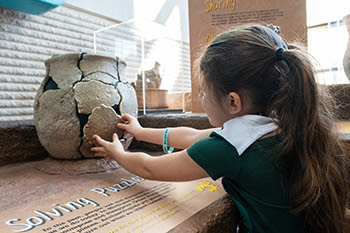 If you’re looking for ways to get out and enjoy Michigan’s natural and cultural resources, here’s a glimpse at the month ahead! Find a complete list of events at Michigan.gov/DNRCalendar. If you’re looking for ways to get out and enjoy Michigan’s natural and cultural resources, here’s a glimpse at the month ahead! Find a complete list of events at Michigan.gov/DNRCalendar.
Harvest festivals
Fall harvest festivals at state parks – with hayrides, pumpkin carving, trick-or-treating, costume contests, haunted trails, nature programs, horse-drawn carriage rides and other family-friendly activities – continue throughout October. Activities in state park campgrounds are typically open only to registered campers, but some parks also offer events for all visitors to enjoy.
Archaeology Day
Have you ever wondered what it’s like to be an archaeologist? Check out Michigan Archaeology Day, Saturday, Oct. 7, at the Michigan History Museum in Lansing. This free event for all ages celebrates the investigations and artifacts that tell the stories of 14,000 years of Michigan history. You can see and learn about the work of Michigan archaeologists, make a clay pinch pot, watch a flintknapper make stone tools, try throwing a spear using an atlatl, join a scavenger hunt, see in-depth special presentations and more. |

Outdoor Adventure Center
October at the Outdoor Adventure Center offers a variety of fall fun for all ages, including archery, nature education programs for kids, family hikes and much more:
That’s just a sampling of what’s happening this month at the OAC. Find more info about these and other programs on the Outdoor Adventure Center events calendar.
Snowshoe making
Learn to weave a pair of traditional wooden snowshoes, which can be used for winter hiking, gift-giving or home décor, during the DNR Outdoor Skills Academy’s snowshoe-making class at Ludington State Park Oct. 28-29.
The class will be offered again in November, along with a venison processing and cooking clinic. Get more details about these and other “how to” programs at Michigan.gov/OutdoorSkills. |
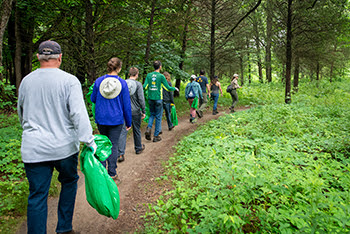 Every month, there are a variety of ways you can get involved in caring for our state’s natural and cultural resources, including millions of acres of public lands that belong to Michigan residents. Every month, there are a variety of ways you can get involved in caring for our state’s natural and cultural resources, including millions of acres of public lands that belong to Michigan residents.
Read on to learn about opportunities around the state this month. For more ideas on how to volunteer, contribute and provide input to make a difference, visit Michigan.gov/DNRVolunteers.
Volunteer workdays at state parks, hatcheries
Several state parks in southern Michigan will host volunteer stewardship workdays. Volunteers are needed to help restore natural areas by removing invasive plants that threaten high-quality ecosystems. Workdays will take place at:
- Waterloo Recreation Area (Washtenaw County), 10 a.m. to 1 p.m. Saturday, Oct. 7.
- Yankee Springs Recreation Area (Barry County), 10 a.m. to 12:30 p.m. Saturday, Oct. 7.
- Island Lake Recreation Area (Livingston County), 10 a.m. to 1 p.m. Sunday, Oct. 8.
- Bald Mountain Recreation Area (Oakland County), 9 a.m. to noon, Saturday, Oct. 14.
- Ludington State Park (Mason County), 10 a.m. to noon Sunday, Oct. 15.
- Muskegon State Park (Muskegon County), 10 a.m. to noon Saturday, Oct. 21.
- Fort Custer Recreation Area (Kalamazoo County), 10 a.m. to 1 p.m. Sunday, Oct. 22.
- Belle Isle Park (Wayne County), 9 a.m. to noon, Saturday, Oct. 28.
Warren Dunes State Park (Berrien County), 10 a.m. to noon Saturday, Oct. 28.
- Pinckney Recreation Area (Washtenaw County), 10 a.m. to 1 p.m. Sunday, Oct. 29.
Wolf Lake State Fish Hatchery Visitor Center in Van Buren County also will host a volunteer stewardship workday 9:30 to 10:30 a.m. Wednesday, Oct. 18. Volunteers will help with invasive species removal, trail and visitor center maintenance, seed collections and much more.
Fall Volunteer Day at Mears State Park in Oceana County is Saturday, Oct. 7, from 9 a.m. to 4 p.m. Volunteers will help get the park ready for winter by putting up snow fence, taking down benches, grills and tables, painting tables and more. Volunteers who work all day can camp for free for the weekend (camping isn’t a requirement to volunteer – all are welcome).
More details about each workday and how to register can be found on the DNR volunteer events calendar. |
On the Ground opportunities to improve wildlife habitat
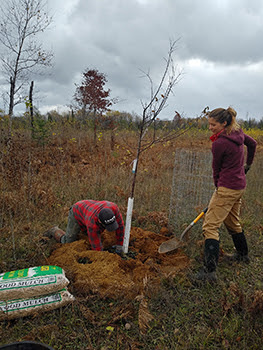 Join On the Ground, Michigan United Conservation Clubs’ volunteer wildlife habitat improvement program in partnership with the DNR, for two projects in October. Join On the Ground, Michigan United Conservation Clubs’ volunteer wildlife habitat improvement program in partnership with the DNR, for two projects in October.
Saturday, Oct. 7, from 9 a.m. to noon, volunteers are needed to spread native grass seeds and remove invasive vegetation to help restore oak savanna habitat at Canonsburg State Game Area in Kent County. Volunteers will plant mast-producing trees – an important fall and winter food source for a wide variety of Michigan wildlife – in the Traverse City Forest Management Unit in Kalkaska County Saturday, Oct. 14, from 10 a.m. to 3 p.m.
Find more details and registration info on the On the Ground webpage.
Weigh in on state land review plans
There’s still an opportunity to review and share feedback on DNR staff recommendations on whether to keep, exchange or sell state-managed land in 11 counties – Baraga, Benzie, Clare, Clinton, Genesee, Ionia, Manistee, Mecosta, Newaygo, Shiawassee and Wayne. Comments on the latest round of the state land review process will be accepted through Oct. 11. |
|
